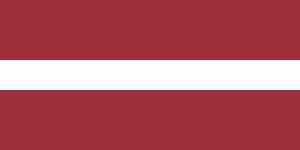Language/Standard-latvian/Vocabulary/Family-and-relationships
| ◀️ Numbers and time — Previous Lesson | Next Lesson — Latvian holidays and celebrations ▶️ |
Introduction[edit | edit source]
In this lesson, we will expand our vocabulary in Standard Latvian to talk about family members and various relationships. Family is an integral part of Latvian culture, and being able to discuss family and relationships is essential for effective communication. By the end of this lesson, you will be able to confidently talk about your family, describe relationships, and understand common terms related to family life.
Family Members[edit | edit source]
Let's start by learning the names of different family members in Latvian. Family is an important part of Latvian culture, and knowing the correct terms for family members will help you navigate social interactions and discussions about your personal life. Here are some common family members:
| Standard Latvian | Pronunciation | English Translation |
|---|---|---|
| Tēvs | [te:vs] | father |
| Māte | [ma:te] | mother |
| Dēls | [de:ls] | son |
| Meita | [me:ita] | daughter |
| Brālis | [bra:lis] | brother |
| Māsa | [ma:sa] | sister |
| Vectēvs | [vecte:vs] | grandfather |
| Vecāmāte | [veca:ma:te] | grandmother |
| Vīrs | [vi:rs] | husband |
| Sieva | [sie:va] | wife |
Relationships[edit | edit source]
Now that we know the names of different family members, let's explore various relationships in Latvian. Understanding these relationship terms will enable you to have meaningful conversations about family dynamics and interpersonal connections. Here are some common relationship terms:
| Standard Latvian | Pronunciation | English Translation |
|---|---|---|
| Vīrietis | [vi:rietis] | man |
| Sieviete | [sie:viete] | woman |
| Puisis | [pu:isis] | boyfriend |
| Meitene | [me:ite:ne] | girlfriend |
| Draugs | [drauks] | friend (male) |
| Draudzene | [draudze:ne] | friend (female) |
| Kaimiņš | [kaimiɲʃ] | neighbor (male) |
| Kaimiņiene | [kaimiɲiene] | neighbor (female) |
| Kolēģis | [kole:gis] | colleague (male) |
| Kolēģe | [kole:ge] | colleague (female) |
Cultural Insights[edit | edit source]
Family is highly valued in Latvian culture, and it plays a significant role in people's lives. Latvians have close-knit families, and extended family members often live nearby or in the same household. Grandparents are highly respected and play an active role in the upbringing of children. It is common for families to gather for Sunday dinners or celebrate special occasions together.
In Latvian culture, it is customary to address older family members and acquaintances with formal titles such as "Tēvs" (father) and "Māte" (mother) followed by the person's first name. This demonstrates respect and acknowledges the person's role in the family or community.
Latvian society places a strong emphasis on gender equality, and both men and women are seen as equal partners in relationships and family life. Traditional gender roles are less prevalent, and it is common for both parents to work and share household responsibilities.
Exercises[edit | edit source]
Now, let's practice using the vocabulary we have learned in this lesson. Translate the following sentences from English to Latvian:
1. My father is a doctor. 2. Her brother is studying abroad. 3. Are you married? 4. I have two sisters and one brother. 5. My grandparents live in the countryside.
Solutions: 1. Mans tēvs ir ārsts. 2. Viņas brālis mācās ārzemēs. 3. Vai tu esi precējies/precējusies? 4. Man ir divas māsas un viens brālis. 5. Mans vectēvs un vecāmāte dzīvo laukos.
Conclusion[edit | edit source]
Congratulations! You have expanded your vocabulary in Standard Latvian to talk about family members and relationships. This knowledge will enable you to engage in conversations about family life and understand the dynamics of interpersonal connections. Keep practicing and using these new words in everyday conversations to reinforce your learning. In the next lesson, we will delve into the topic of Latvian traditions and customs. Līdz nākamajai reizei! (Until next time!)
Other Lessons[edit | edit source]
- Music, films and books
- Drinks
- Fruits
- Numbers and time
- Days of the Week
- Family
- Greetings and introductions
- Means of transport and directions
- Count to 10
| ◀️ Numbers and time — Previous Lesson | Next Lesson — Latvian holidays and celebrations ▶️ |

